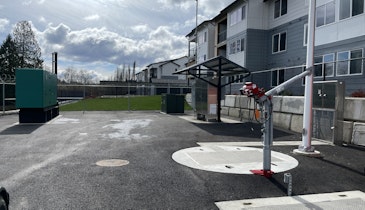Interested in Business?
Get Business articles, news and videos right in your inbox! Sign up now.
Business + Get AlertsOver the summer, Massachusetts officials updated onsite rules to address nitrogen pollution, but the new rules are more limited than originally proposed.
In 2022, when officials first suggested changing the rules, widespread public opposition caused the state to hold several public hearings and extend its deadline for public comments. The proposed changes would have allowed the state Department of Environmental Quality to designate nitrogen-sensitive areas along the entire Massachusetts coast and on its islands. Onsite system owners in designated areas would have faced a tight deadline to upgrade their systems to include nitrogen-reducing technology. The updated rules focus only on Cape Cod.
Municipalities in designated nitrogen-sensitive areas will have two years to acquire a watershed permit that will last 20 years and allow them to apply a range of nitrogen pollution remedies such as municipal sewer connections and advanced onsite systems, news reports said. If a municipality does not acquire a permit, its residents will be required to upgrade onsite systems on their own.
The proposed rules set a five-year time limit for homeowners to improve systems in the absence of a watershed permit. In the updated rules, the five-year clock doesn’t start until the end of the two-year window for a watershed permit application.
State Sen. Julian Cyr (D), who represents Cape Cod and the islands of Nantucket and Martha’s Vineyard, said he expects most municipalities will apply for the permits. Earlier this year he said most communities already meet the permit requirement because of their work on comprehensive watershed management plans. The final onsite rules streamline transformation of those comprehensive watershed plans into the new watershed permits.
According to information compiled by the Association to Preserve Cape Cod, about 90% of bays along the cape had unacceptable levels of nitrogen in 2022 compared to 68% of bays in 2019.
In a related action, town of Dartmouth residents approved the potential expenditure of $200,000 for legal counsel that may be needed to represent the town in conjunction with the state’s new onsite rules. If the money is not spent within a year, it will return to the town’s general fund.
Because of the cost of nitrogen-reducing systems, Dartmouth citizens and their government were vocal in opposing the proposed rules. Dartmouth is not included in the final rules. In a statement the Department of Environmental Quality said communities on the state’s southern coast, such as Dartmouth, have not had the same time as Cape Cod communities to plan for nutrient reduction. The department said it intends to assist communities outside the cape with nutrient pollution planning.
The budget proposed by Democratic Gov. Maura Healey calls for tax rebates of up to $12,000 for homeowners who upgrade their onsite systems.
Florida
Officials in Martin County put a 60-day delay on a new sewer system for two communities now served by onsite systems. The decision came after residents voiced concerns about the cost of hooking up to municipal sewer.
As part of its goal to eliminate septic tanks within 10 years, the county specified 1,000 homes in Port Salerno and New Monrovia must connect to a future municipal sewer system. After completion of the system in 2025, residents would have one year to connect at a cost of about $12,000, reported WPTV of West Palm Beach. If that cost were spread over 20 years of payments added to tax bills, each homeowner would pay about $15,000.
County commissioners delayed the system to find out what other state and federal funds might be available. Commissioners said each $1,000 of reduction in connection cost assessment for a homeowner requires $1 million from other sources. Grants would cover about half of the system’s $24.3 million cost.
Martin County lies between Lake Okeechobee and the Atlantic Ocean.
Washington State
The state is distributing $313 million in grants and loans for clean water projects, including onsite work. The Regional Onsite Sewage System Loan Program will receive more than $15 million to assist homeowners with onsite repairs or upgrades. This is a continuing project of the state Ecology and Health departments, and the nonprofit third-party lender Craft3.
Thirty-seven nonpoint pollution projects will receive $43.9 million. Projects include stabilizing stream banks in the Hangman Creek watershed near Spokane and establishing a watershed conservation fund in Jefferson County, which covers part of the Olympic Peninsula.
Money for these projects comes from the state and the Bipartisan Infrastructure Law signed by President Joe Biden in 2021.
Oklahoma
A judge sentenced the owner of an onsite installation company to life in prison without parole for killing his employee and burying his body beneath a septic tank.
When Brent Mack went missing in September 2021, Daniel Triplett, of Guthrie, Oklahoma, told police he had fired Mack, paid him $1,000 in severance, and dropped him off at a laundromat. Using a search warrant, investigators looked at a list of recent installations by Triplett and focused on the job done on the day Mack went missing.
Surveillance video showed Triplett and Mack working at the job site. Mack climbed down into a septic tank hole but never appeared in the video again, and although the video showed two people arriving at the site, only one was seen leaving.
Investigators dug up the tank and beneath it found a body and a wallet containing Mack’s ID. They said Triplett shot Mack in the back and used a backhoe to bury him.





